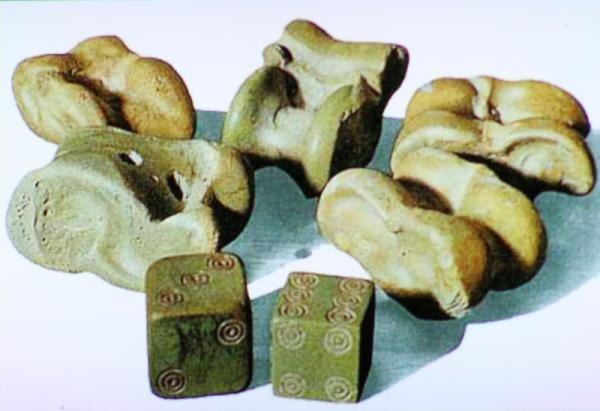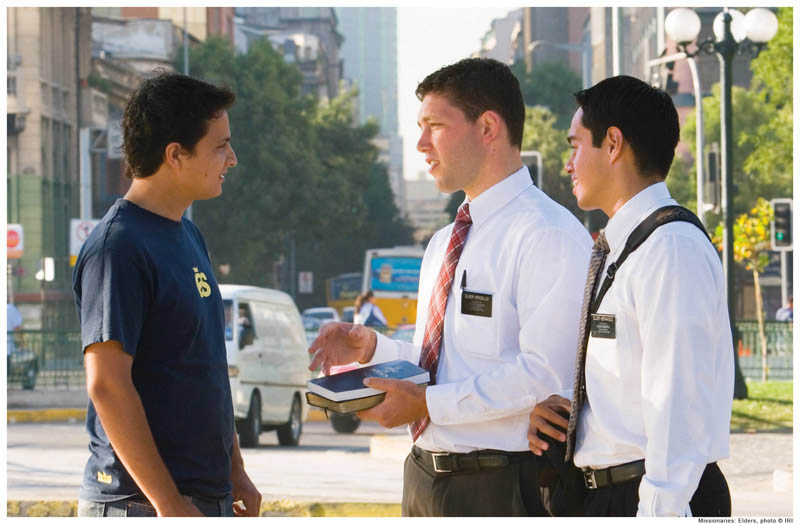Question
Gramps,
Would it be appropriate (or even effective) to “cast lots” in order to obtain revelation? It was done in the Bible quite often. In certain situations could you flip a coin, draw straws, or roll a dice to receive/ confirm revelation?
Dice Guy
Answer
Dear Brother Guy,
The casting of lots is mentioned throughout the scriptures as a method for receiving revelation. Proverbs places great trust in it and reflects two sides to it (how appropriate!). On the one hand, there’s a very practical side to it. Those that bind themselves to the lot cannot claim favoritism or impartiality on the part of the caster. “The lot causeth contentions to cease, and parteth between the mighty” (Proverbs 18:18). Another wise saying takes it to the next level by attributing to the Divine that which is actually quite pedestrian. “The lot is cast into the lap; but the whole disposing thereof is of the Lord” (Proverbs 16:33).
That second proverb suggests that the casting of the lot is essentially a coin toss. Others have suggested that it involved blindly drawing either a black or a white stone. Hugh Nibley has written about the use of arrows in ancient Arabic cultures in this role of divination or lot casting (comparing this with the use of the two-spindled liahona, see Since Cumorah, pg 287-296). Suffice it to say that the precise ritual and order surrounding the practice has largely been lost to us, and for that reason I would be reluctant to assume that a simple roll of the die manifests the Lord’s will.
In examining the scriptural examples of lot casting used in the scripture I see examples that could be classified under either proverb (I have discounted the occasions mentioned in scripture where the practitioners were outside the covenant, such as the story of Jonah and at the Crucifixion). For instance, the Levitical rotation for temple service (particularly the hymnists) was assigned by casting lots (1 Chronicles 25). I don’t think it necessarily mattered to the Lord as to who served on any given day as they were all worthy and of the right lineage. What was proper (as it is today) was that all who served felt equal. When Joshua cast lots, it was to assign the tribes to their given land (Joshua 18). At a first reading it strikes me as an attempt at fairness. If the tribe elders are setting the boundaries for tribes (including their own), everyone has an incentive to be completely equitable since no one knows which land will be allotted to them. Joshua, however, elevates this chance-driven event to something revelatory by testifying “I … cast lots for you here [at the tabernacle] before the Lord our God” (vs 1, 6). Similarly, Saul has lots cast to secret things only known by the Lord (1 Samuel 14:42). We even find the practice in The Book of Mormon. Nephi and his brothers cast lots to determine who will get the plates from Laban. Depending on your leanings based on other scriptural examples, this could be read as an example of Nephi attempting find a fair way to select one person to make the attempt (thus minimizng risk); it could also be read as the Lord manifesting that it was Laman’s right as primogenitor to obtain the family records (1 Nephi 3:11).
I think it is very worthwhile to note that we have no pre-Mosaic reference to the practice – suggesting that it was part of the lesser law given to a people who would not receive the Holy Ghost. This position is further bolstered by the final example of casting lots in the Bible – selecting a new apostle (Acts 1:15-26). The general authorities of the time gathered to consider who should be called to replace fallen Judas. After studying the matter out, and liberally applying a healthy dose of prayer, “they gave forth their lots; and the lot fell upon Matthias; and he was numbered with the eleven apostles.” By narrowing down the candidate list to two, and by “[giving] forth their lots” instead of casting them, this experience sounds like more than the application of the tools of chance. Notably, this last instance occurs before the Gift of the Holy Ghost is poured out at Pentecost. Once the Revelator was generally available, the practice of casting lots fell out of favor. After all, why suck on a damp rag when there’s a fountain right next to you?
Finally, the Doctrine and Covenants includes an example of casting lots. The High Council casts lots to determine speaking order and (especially in the case of disciplinary councils) to “prevent insult and injustice” (D&C 102:12,17). Once again, as in the case of the Levites, it doesn’t matter so much what the order is; this is a simple matter of avoiding favoritism and injustice. Each member of the Council is blessed with the Holy Ghost and should have learned the principles of revelation by this point so I don’t think this is necessarily to determine who the Lord wants speaking first.
With all this in mind, I think it could be appropriate (and even effective) to employ some modern variations on the casting of lots. First, I would keep in mind that such methodology is a lesser form of revelation and continue to practice learning the ideal. Second, I would also practice it in the manner of the 11 apostles or the modern High Council by prayerfully narrowing down the selection to actions that the Lord would approve regardless. Finally, I would continue to follow up through prayer that the course I am pursuing is still (and indeed) the Lord’s will. You’ll note that this is the same general pattern of revelation employed by those who are blessed with the Gift of the Holy Ghost – with the exception that when the supplicant is left at an impasse, the course forward is determined by a coin toss, instead of either a form of analysis paralysis or selecting a course based on best judgment.
Gramps







